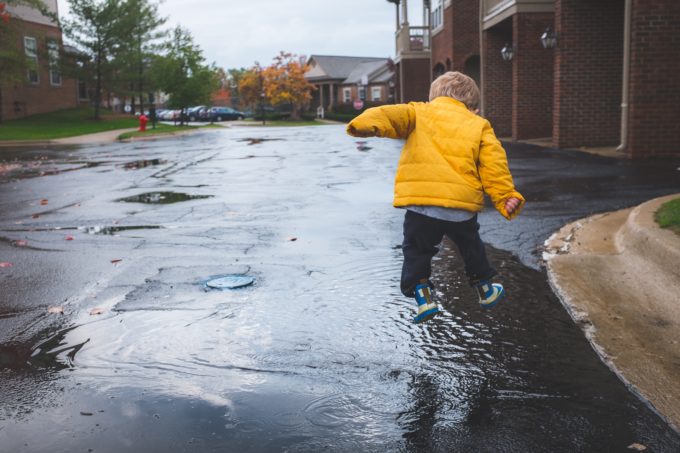It’s not ‘Bad Parenting’. You’re Raising a Strong-Willed Child.
Inside: Discover why many parents raising a child with a strong-willed temperament feel they’re failing when in reality, they’re on a unique parenting journey.
There’s nothing that makes a new (or experienced!) parent feel more inadequate than parenting a strong-willed child.
For starters, your child only listens on the 3rd Friday of each month and even on that day, they’ll likely throw themselves down on the ground while leaving the zoo because you didn’t buy them the $12 rubber snake.
It’s not easy raising a determined, independent kid who has all the emotions all the time.

After raising a strong willed child (2 to be exact) and talking with hundreds of others in the trenches through my roles of Child Therapist and Parent Coach, I know there’s an additional, universal struggle, you deal with, making all the normal daily challenges with a spirited child exponentially more difficult to handle.
You feel like a bad parent.
After all, what other factor could explain why your child doesn’t easily listen in many situations, struggles to handle their emotions and engages in power struggles like it’s their part-time job?
As humans when we don’t know the answer to something, our brains like to make one up, and when it comes to your child’s bewildering behaviors, your influence as a parent is the first easy target.
Don’t miss out>> More cooperation and less conflict. Confident & Connected: Raise Your Strong-Willed Child Without Regrets Online Course Opens Soon. Get on the Waitlist here.
You might be surprised to know there’s actually a lot of reasons your child has a strong will, many of which happen to be rooted in developmental science on infant temperament and parent-child attachment styles.
It’s been known and studied for several decades that many aspects of temperament such as activity level, adaptability, and emotional intensity are set in stone biologically long before the environment has a chance to factor in.
You’re not a bad parent. You’re raising a strong willed child.
I can assure you that strong-willed child characteristics are not a sign of poor parenting, and in my experience, may actually be a sign of a pretty great parent (and darn amazing kid, no really). Here are just a few reasons why.

You have to withstand the judgment and criticism of others
If it isn’t bad enough you doubt your own parenting approach many days, you’re keenly aware of how others observe you handling your strong willed child’s defiance at the park (or at least you could swear others are always watching you..) or at the school music concert.
Well-meaning family and friends may have even suggested that you need to discipline your child more. It’s emotionally exhausting to bear the weight of others judgment while you’re doing your very best to parent, but you’re learning to tune this out in order to focus on the strategies your individual child needs and not what will please the peanut gallery around you.
You’ve become open to personal growth
You had a pretty good idea of what parenting would look like and your strong willed child has pretty much chewed up that vision and spit it out on a daily basis since the age of 3. You’re working really hard at learning what makes your kid tick and why they respond the way they do in certain situations.
You’ve likely researched more, read more books and tried more parenting interventions and approaches than the average parent. You’ve learned that fighting them doesn’t help and you’re doing your best to discipline your strong-willed child in a way that teaches them to channel their determination and gusto in a respectful way.
You’re less likely to judge
The hot mess moms at school drop off are now your people. Your smart and audacious child has engaged you in three dozen discussions on what they’d like for Christmas before 7 am. They’ve challenged your breakfast options, why you gave them the green spoon, and why they have to go to school again.
You’ve made it to school on time and while your energy is already completely drained for the day, you now see this for the victory that it is.
You respect your unique kid for who they are
You know full well you’ve worked hard to set proper limits and continue to teach your child right from wrong but you’ve witnessed firsthand that children are still humans with minds and personalities of their own.
You’ve learned firsthand that even after 15 ‘timeouts’ in an hour, it just isn’t possible to control another human being’s behavior (nor is it healthy to for that matter).
{Learn more about the benefits of ‘time-in’ with your strong willed child}.
Your child is not you. They have a path all their own and this realization is not only freeing but pretty exciting and awesome.
You’re learning to be a strong leader, as opposed to a dictator while accepting your child exactly as they are, which is the best mindset for parenting a strong willed, highly emotional child.

You’re putting your money where your mouth is
No one will blow the whistle on your hypocrisy like your strong willed child does. They are whip-smart, highly observative and are always watching you.
You’rerealizing now that ‘do as I say and not as I do’ is an antiquated and horribly counterintuitive way to teach your strong willed child the qualities you’d like them to manifest.
It only makes sense that you should manifest yourself the qualities you expect to see in your (much less emotionally mature) child, and you’re learning you have some growing up to do right alongside your spirited child many days.
Raising a strong willed child does not mean you’re a bad parent
It does mean you’re a strong parent.
A tired parent.
A frustrated parent…
and many days an overwhelmed parent.
You’re the parent of a child who feels things deeply, believes things strongly and lives life fully. My best advice after 10 years of raising strong willed kids?
Love them for who they are not what they do, teach them to channel their amazing spirit for good and give all parties involved a whole lot of grace along the way.
P.S. Your spirited child is more complex, and so is your parenting journey…but don’t worry I’m here to simplify the (often) overwhelming and beautiful journey of raising a spirited child.
Click here to access my free 9-page Masterguide with actionable steps to get you started on your journey to less conflict and more cooperation with your strong-willed child.













I have a strong willed child who also has Disruptive mood Deregulation Disorder and everyday is a journey and most days are a struggle, whether it’s going to school or taking medicine. The one thing I have learned is to give him choices even if it is only the illusion of a choice, offering options gives him the independence he craves.